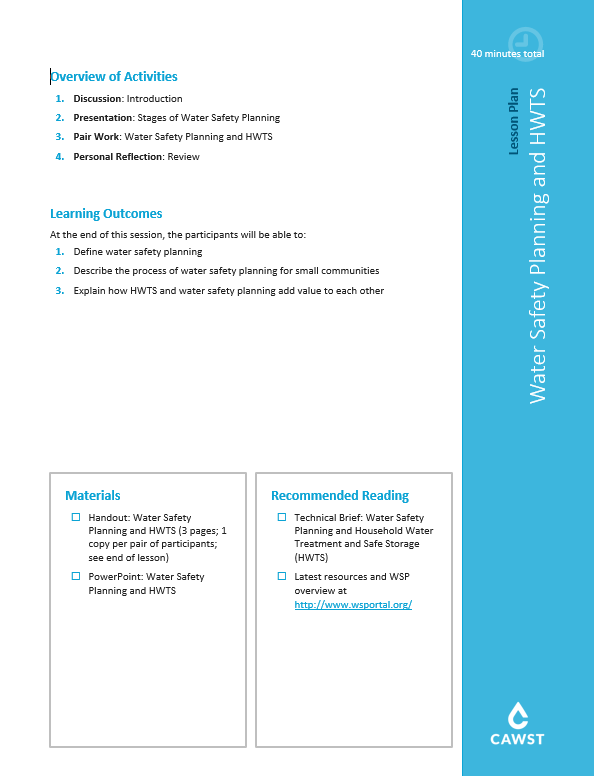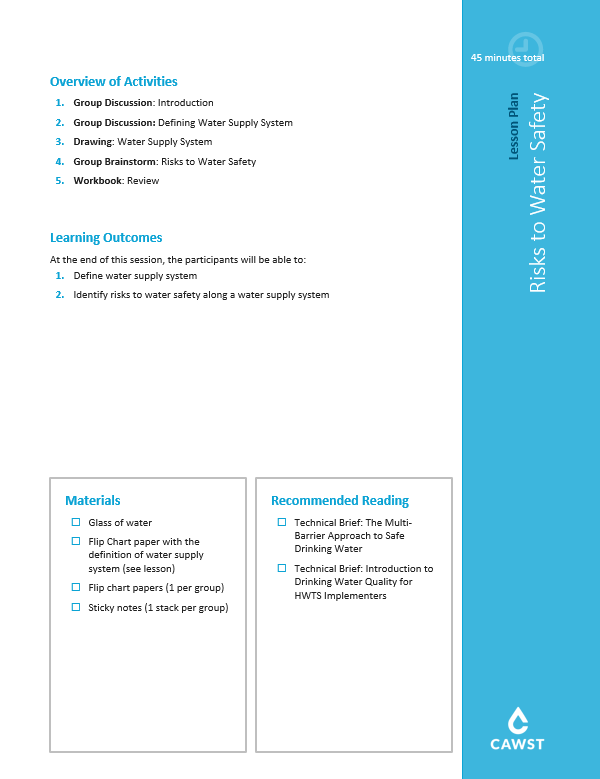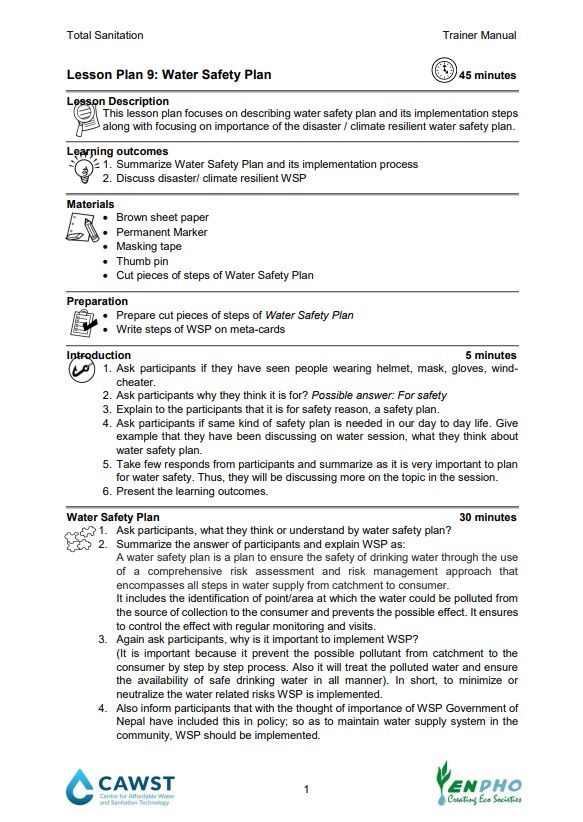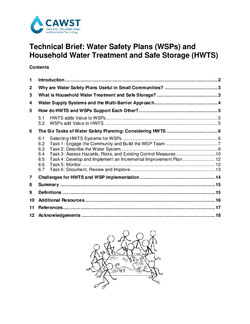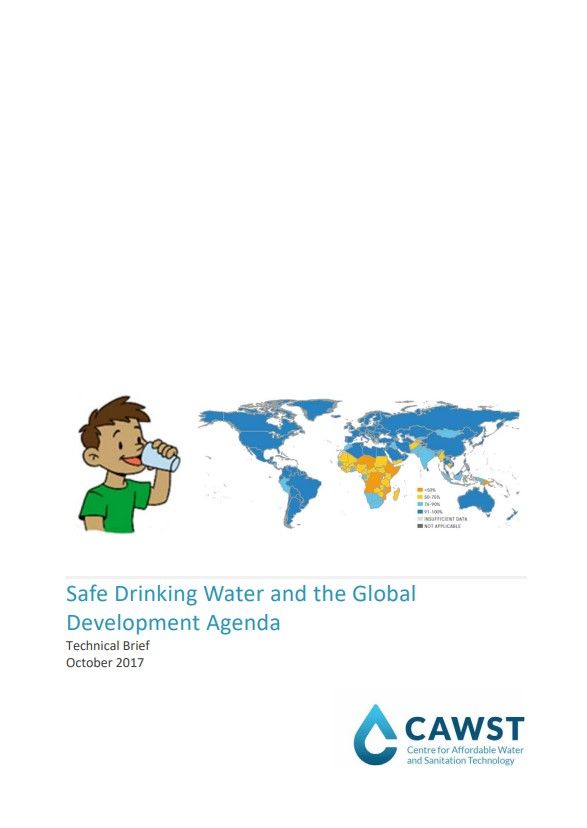Water Safety Planning
Water Safety Planning
Co-developed with
Languages
English•French•Spanish
Regions
South Asia
Water Safety Planning and HWTS Presentation (HWTS)
This presentation is for use with “Lesson Plan: Water Safety Planning and HWTS” in the Household Water Treatment and Safe Storage (HWTS) Trainer Manual
HWTS and Water Safety Planning - Lesson Plan (HWTS)
In this optional lesson, participants describe the process of water safety planning for small communities. Participants explain how HWTS and water safety planning can add value to each other. The lesson includes a presentation, pair work, and personal reflection.
Risks to Water Safety - Lesson Plan (HWTS)
In this lesson, participants draw a water supply system and identify risks to water safety from the source to the user’s glass.
Water Safety Plan - Lesson Plan (TS3 Nepal)
This lesson plan focuses on describing water safety plan and its implementation steps along with focusing on importance of the disaster / climate resilient water safety plan.
Water Safety Plans (WSPs) and Household Water Treatment and Safe Storage (HWTS) Technical Brief
This Technical Brief introduces the importance of water safety planning for small communities. It describes the benefits of including household water treatment and safe storage (HWTS) in a water safety plan (WSP), and explains how the WSP approach can improve HWTS implementation. It also provides an overview of the six water safety planning tasks for small communities, with considerations for integrating HWTS throughout the tasks.
Safe Drinking Water and the Global Development Agenda
This technical brief defines safe drinking water and describes why it is necessary. It discusses some of the most important global goals, declarations, and approaches that have influenced the global agenda for safe drinking water (for example, Millennium Development Goals, water safety planning, the human right to water, and the Sustainable Development Goals). It also briefly describes how household water treatment and safe storage (HWTS) can contribute to the global agenda for safe drinking water.
About CAWST
CAWST is a Canadian charity and licensed engineering firm. We address the global need for safe drinking water and sanitation by building local knowledge and skills on household solutions people can implement themselves.

